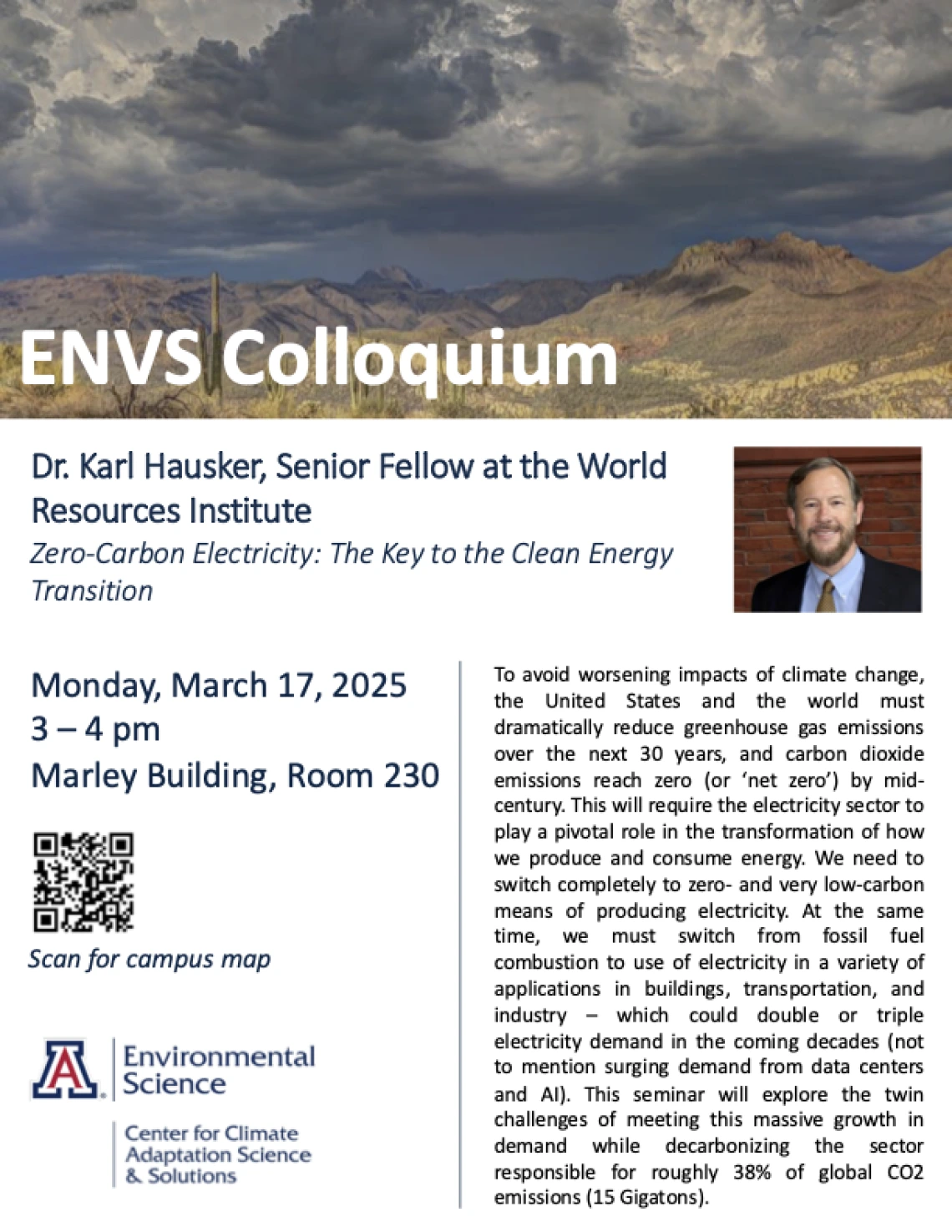
When
Where
We are honored to welcome Dr. Karl Hausker as an upcoming ENVS Colloquium speaker; he will also join students for lunch on the same day! Karl is a Senior Fellow with the World Resources Institute who has worked on decarbonization for decades.
On Monday, March 17, Karl will present Zero-Carbon Electricity: The Key to the Clean Energy Transition in the Marley Building, room 230 from 3-4pm. All are welcome! This talk is co-sponsored by the Center for Climate Adaptation Science and Solutions (CCASS).
Please find the flyer attached and Karl's bio below for more information.
Student lunch opportunity: CCASS is hosting a student lunch with Karl on the same day, Monday, March 17 from 12 - 1:15 pm in ENR2, room N604. You can find more information and register for the lunch at this link.
Speaker bio: Dr. Karl Hausker is a Senior Fellow at the World Resources Institute. He leads analysis and modeling of the clean energy transition, climate mitigation, electricity market design, and the social cost of carbon. He served as an Expert Reviewer for the IPCC Sixth Assessment Report. He led the 2016 Risky Business study of clean energy scenarios for the U.S., and lectures widely on clean energy and net-zero emission pathways. He has worked for three decades in the fields of climate change, energy, and environment in a career that has spanned legislative and executive branches, research institutions, NGOs, and consulting. He has led climate policy analysis and modeling projects for USAID, USEPA, the Regional Greenhouse Gas Initiative, the Western Climate Initiative, and the California Air Resources Board. Most of his work has focused on the electricity and transportation sectors. From 2007-2013, Karl was a Vice President at ICF International. He previously served as Deputy Director at the Center for Climate Strategies and as a Principal with Hagler Bailly. Karl lived in India all of 1999 as a Visiting Fellow at TERI. His experience also includes: serving President Clinton as Deputy Assistant Administrator in EPA’s Policy Office where he represented EPA in interagency climate policy development and at COP-1; and serving as the Chief Economist for the U.S. Senate Committee on Energy and Natural Resources, where he worked on a diverse set of issues including electricity restructuring, CAFE standards, alternative fuels, western water policy, nuclear power, and energy security.

